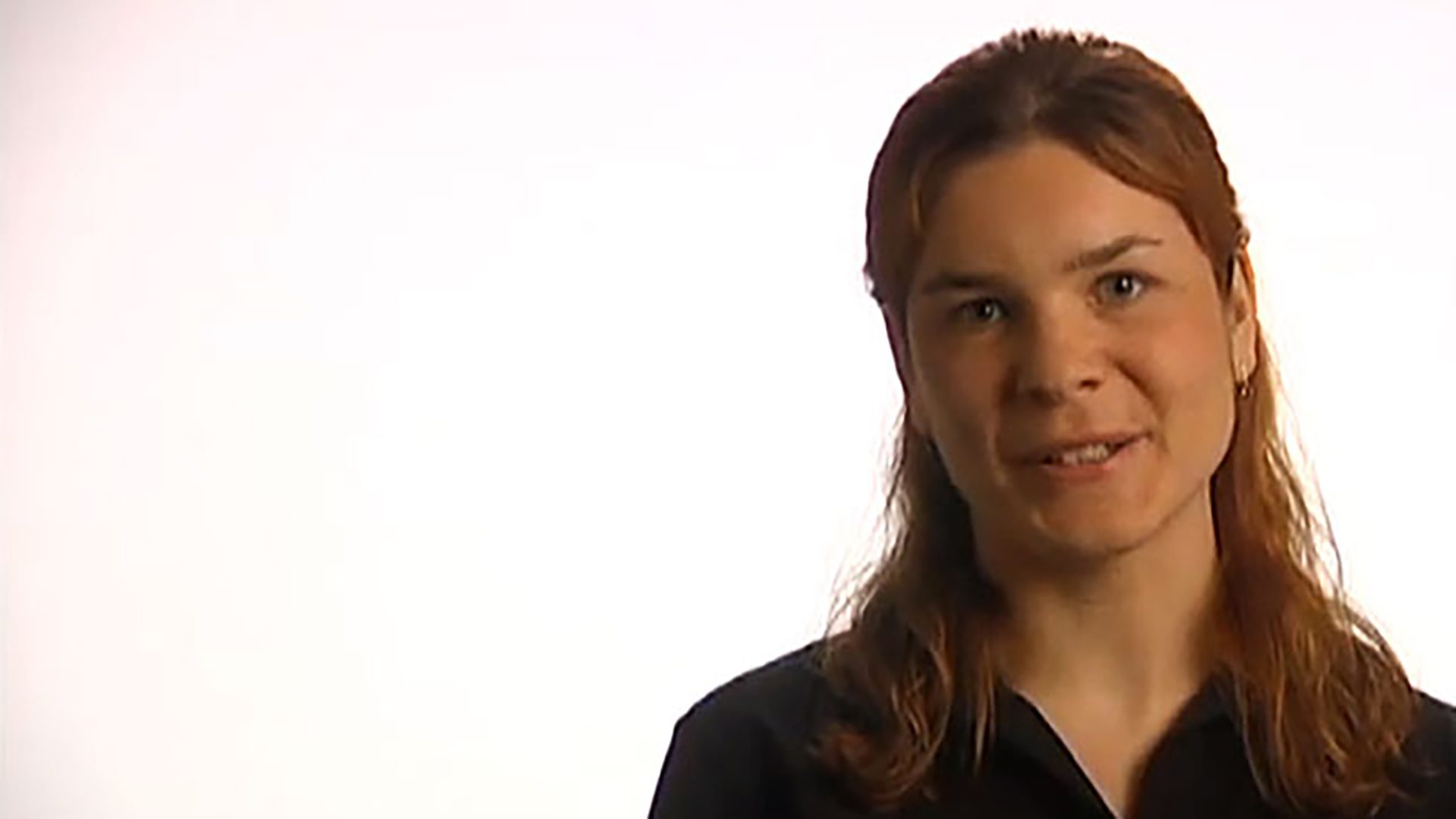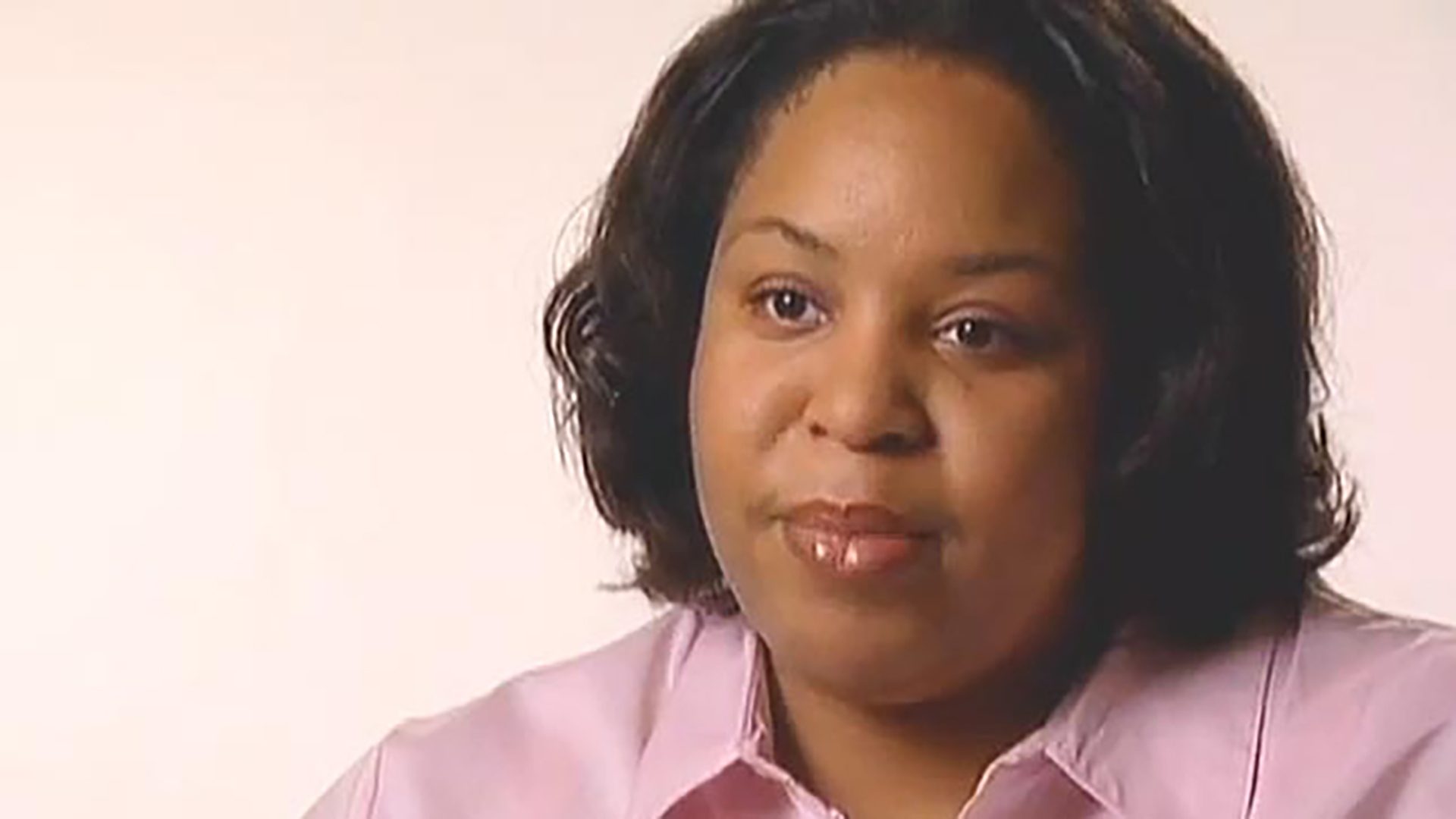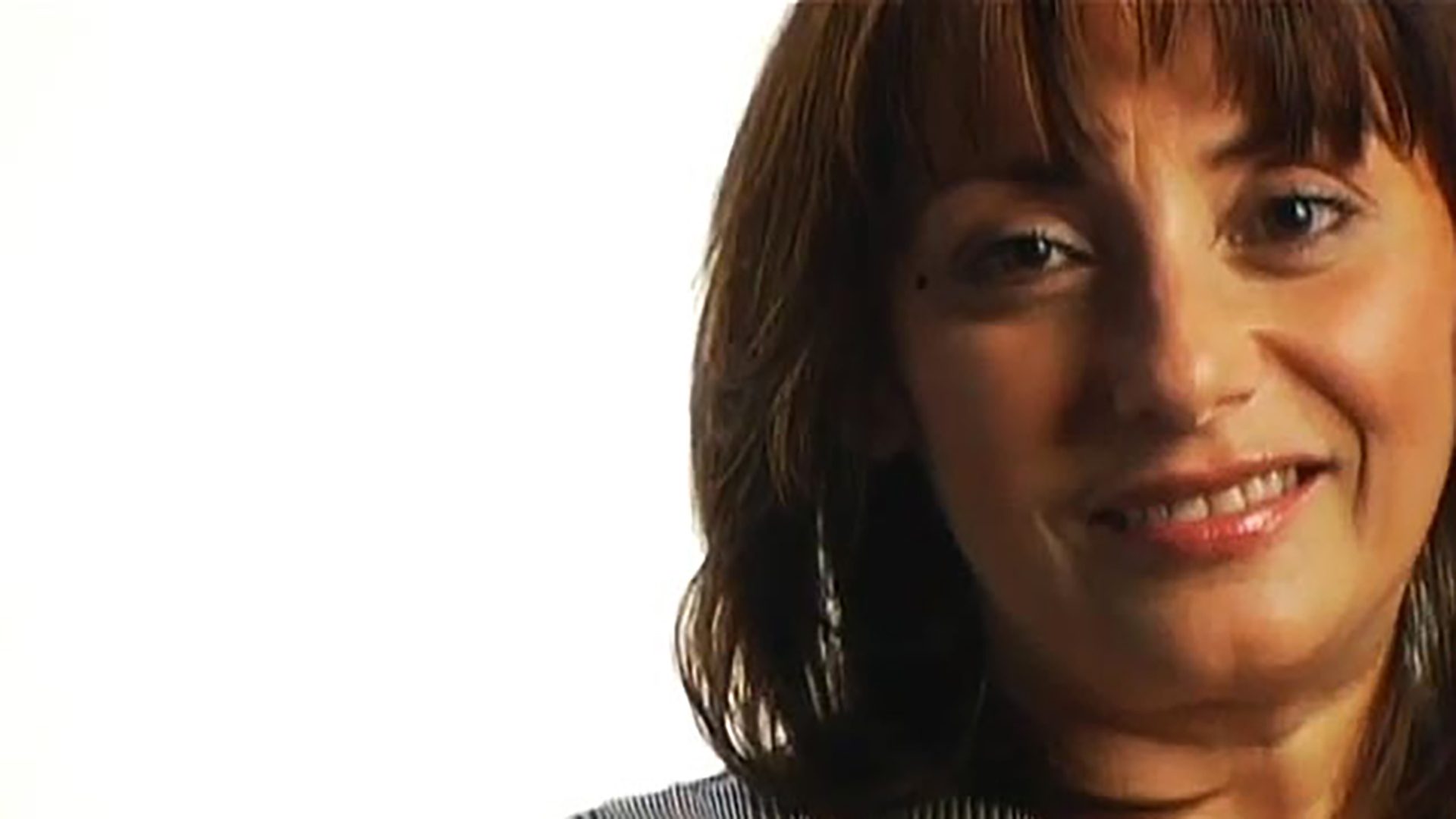Survivor Interview – Jeannine W.
Jeannine is a brain tumor survivor. She talks about finding and evaluating cancer resources, public policy and lobbying, and complementary therapies.

I started experiencing severe dizziness and I went to a general practitioner, who referred me to an ear specialist. He ordered an MRI, and that’s how I was diagnosed with a brain tumor. In hindsight, I did have other symptoms, which were all very minor. It was easy for me to have excuses, like being tired or feeling stress.
My brain tumor was in my temporal lobe, which is the speech and memory area of the brain, making the procedure a little more complex. Fortunately, the tumor wasn’t deep in my brain, so the surgeons thought that they could get most of it. I, ultimately, decided to have my treatment in a surgical clinical trial at the National Institutes of Health. The surgery itself was 12 hours, and I was awake for it to safeguard the integrity of both my speech and memory functioning. Fortunately, it worked out well. The doctors removed all of the tumor as well as about a centimeter of tissue around the tumor site.
After the surgery, I spoke with several neuro-oncologists about whether or not I should have radiation and/or chemotherapy. I’m the type of patient that really likes to be a partner in decision-making about my own health. After all, it is my body. The consensus was that I shouldn’t have any additional treatments, due to the success of the surgery, as well as my general health and age.
After I was diagnosed with a brain tumor, I entered a world that I knew nothing about. Not only was my universe turned upside down, but I was suddenly in conversations speaking languages that were completely foreign to me. I had to learn a lot about medical terminology, as well as the cancer arena and what that involved in terms of Jeannine as a patient. I contacted several of the brain tumor non-profits around the country: The Brain Tumor Society, The American Brain Tumor Association, and The National Brain Tumor Foundation. I asked for educational materials to be sent to me. They also have counselors who help patients talk through treatment decisions, as well as offer advice about issues from coping with emotions to returning to work. With the Internet, of course, there are even more resources available.
It can get confusing. I relied on credible information from brain tumor non-profits that were clearly documented. In other words, they had references, they discuss studies. Part of it is just intuition. After a while, I knew what made sense and what didn’t. I had telephone conversations, in-person meetings when possible, and I asked questions. Other patients that have been there are an invaluable resource. There are so many people out there that are willing to lend a helping hand. For some, it’s their job. For others, they’ve just been there, and they want to help those struggling through something they’ve already dealt with.
In talking to brain tumor non-profits and other patients, certain names come up over and over. It’s those people that patients should pay more attention to. There are, of course, cancer centers that have certain levels of accreditation. That’s important. It’s not always possible for patients that live in rural areas to access that level of quality care. Yet, they can have consultations by telephone or even take a plane ride if it’s critical to get a medical opinion from someone with a level of expertise that surpasses most others. Take that information back to the local hospital and ask the consulting doctor to be a resource to your local physician.
I learned that I needed to be my own advocate. I had a hospital not review my pathology for three months. I was terminated as a patient from one institution. I had several doctors tell me, with smiles, that I’d die of a brain tumor. No one was gonna spoon-feed me information, no one was gonna hold my hand. There are resources out there but, ultimately, it was up to me. That was a really hard lesson to learn. When confronted with conflicting information and situations with hospitals where there wasn’t appropriate follow-up, I had to ask for the information. I had to educate myself about what information I was receiving and not receiving.
It’s always important to get copies of your medical records, to not rely alone on what the doctor says verbally. As other medical issues arise, that information is gonna be absolutely essential to continuing to take care of yourself. Large institutions have medical records departments. Call the main number of a hospital and they’ll refer you there. I believe there’s a certain statute of time that’s required for them to respond. It’s federal law for patients to have copies of their medical records when they’re requested. Patients deserve that. It’s their entitlement.
I was a lobbyist for a few years. I actually worked for a congressman when I was diagnosed, then I continued on the Hill for two years, and then I worked for two cancer non-profits as a lobbyist for two years. Every cancer survivor has a really powerful story. Sharing that story, describing the trials and tribulations, especially in the context of public policy, offers an opportunity to create social change in a way that nothing else does. We can help a larger community by advocating for federal public policy that affects cancer patients, that relates to cancer prevention, that specifically applies to cancer survivorship.
Our policymakers need to pay more attention to those pieces of legislation that directly impact people like me. There are approximately 9.6 million cancer survivors alive today, and we have rights and needs. The experience doesn’t end when the doctor says the cancer is gone. In fact, that’s only the beginning of a journey that takes cancer survivors places they’ve never imagined. It’s unpredictable, and there are great effects. There are ongoing medical issues that cancer survivors need to monitor. That costs money, and it takes medical attention. Late effects from cancer need to be covered by insurance companies.
Cancer turned my world upside down, and it opened up a place inside of me that was completely new. At the age of 24, as I faced my own mortality, I realized that it’s a gift to look at death as a way to awaken to life. In other words, by facing death, I thought, “What do I want to do with my time? Why am I here? What’s most important to me?” I can sit around and continue doing certain things that aren’t serving me, or I can make some changes and really awaken to life more fully. That’s how I try to live. I’m not always successful, yet I always strive in that direction.
One of the most important lessons I learned was that I needed to understand myself on a deeper level and how to address my own emotional needs. It couldn’t come from anyone else. In so many ways, my brain tumor also offered me an opportunity for a spiritual awakening, an awakening to life. It taught me that I’m never alone. There are endless resources available to me within the universe, and we’re all connected. That connection with all life can only come from the journey into and through the heart. If cancer has taught me anything, it’s about the importance of love and that life is short. If we don’t love ourselves and each other, then life isn’t as meaningful. It really taught me how to focus on living.
Post-traumatic stress disorder is a real medical phenomenon for patients, and I recognize symptoms in myself at moments. I also began to focus on post-traumatic growth, which is a term for the positive changes that come from life struggles. There have been studies on that, which indicate that a large number of cancer survivors, as well as their caregivers, experience growth as a result of their illness. I’m not underestimating the effects of post-traumatic stress disorder. I’m only saying that people can move through it with the right help and the proper resources, and at the other end is an opportunity to grow in new ways.
The doctor successfully removed my tumor, yet I still felt broken. I needed help in healing from the experience. I’ve utilized complementary and alternative therapeutic modalities to help me not only heal, but also address imbalances that were present even before the cancer or maybe as a result of the cancer. I’ve used acupuncture and herbs. I’ve changed my diet quite a bit. I’ve done some energy therapy, some homeopathy, and many others. Patients should look to practitioners that are aware of not only the research but are very well-trained and are capable of dealing with late effects from the cancer experience: physical, emotional, and spiritual.
Over time, I’ve been able to tap into my true purpose a little bit more deeply and get a little closer to my ultimate goal of becoming an acupuncturist. It’s a way for me to help people with health care issues, help ailments, and give back in a way that is right for me and true to who I am, my talents and purpose on earth in this lifetime.
My name is Jeannine Walston, I’m 30 years old, and I’m a brain tumor survivor.

